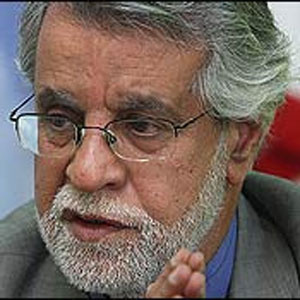Arabs’ New Anti-Iranian Wave

With Iran increasingly recognized as a regional power and talks about its likely negotiations with the United States, Arabs are concerned that… Interview with Mohammad Ali Mohtadi, Middle East expert.
With Nategh Nouri’s [two-term parliament speaker] statements about Bahrain, regional media have warned of Iran’s intention to regain this former province. Iranian Diplomacy has Mohammad Ali Mohtadi, Middle East expert:
Why are Arab states overreacting about Nategh Nouri’s remarks on Bahrain?
Those Arab states which rely on America for their political existence –the so-called ’moderate’ states- are looking for any single slip to attack Iran. This time, Nategh Nouri’s remarks about a historical issue is their pretext. He has just pointed that Bahrain was once a part of Iran’s territory. However, Iran currently recognizes Bahrain’s sovereignty, has an embassy there and makes no territorial claims on this country.
But the pro-American axis has found its excuse. The Egyptian President and the Jordanian King have traveled to Bahrain, Saudi Arabia has expressed its support for Bahrain, Arab League Secretary General has made remarks and in Riyadh, GCC foreign ministers have taken issue against Nategh Nouri’s remarks to create their desirable anti-Iranian atmosphere.
Social conditions in Bahrain speak for themselves. Shiites hold the majority in this country and there are rumors around that the government intends to engineer the demographics. Public protests have been cracked down instead of being dealt with tactfully. Bahrain is trying to run a bogus fight with Iran so that it can accuse Tehran of masterminding the unrest.
Are there any connections with Arabs’ reaction and the possibility of Iran-U.S. negotiations?
With Iran increasingly recognized as a regional power and talks about its likely negotiations with the United States, Arabs are concerned that their regional role may fade away. Therefore, they try to create an anti-Iranian atmosphere and make an issue of what happened between Iran and Bahrain. Victories achieved by Iran-backed groups in Lebanon and Gaza have also added to their concerns. Arab states are in general opposed to the resistance movement and ask for normalization of ties with Israel. That’s all behind their latest cheap propaganda against Iran.
How much of this goes back to their worries about Iran’s nuclear activities?
Not only the nuclear program, but also every scientific or technological progress made by Iran, and its regional influence, power and independence cause concern among Arabs. The nuclear program is a constituent of Iran’s regional power.

